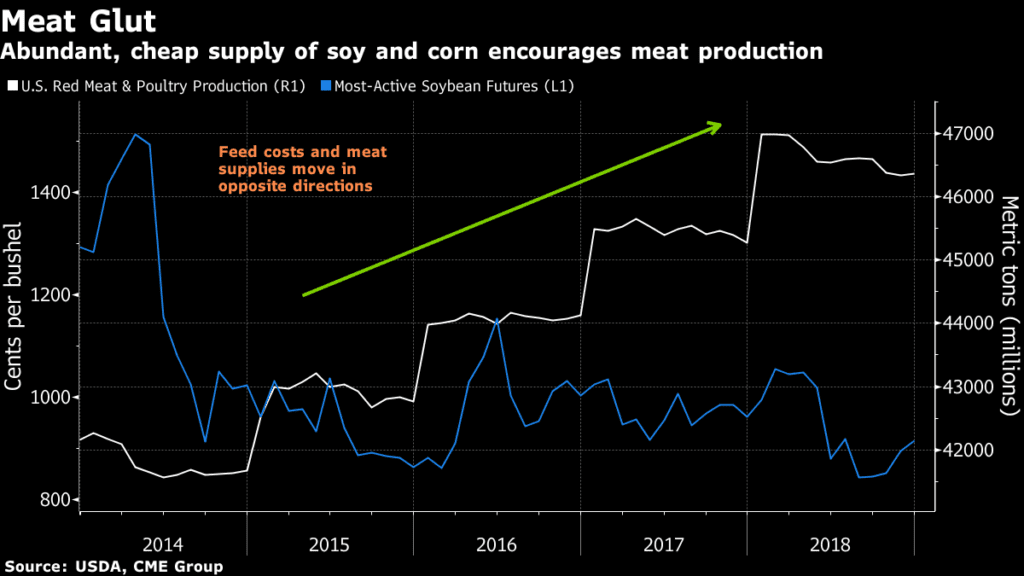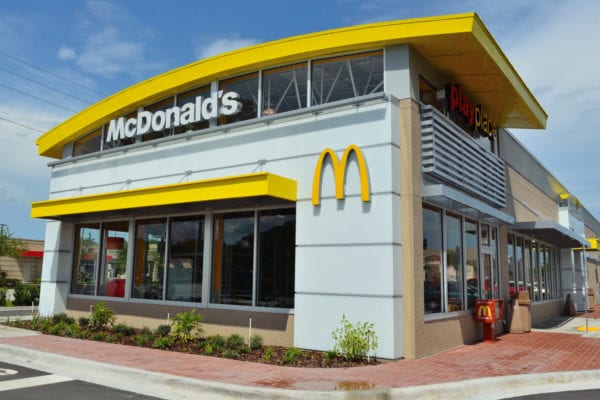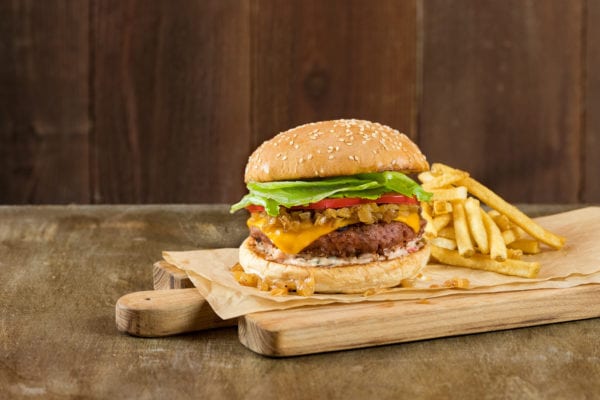Skift Take
Too much meat is good news for chains selling stuff for cheap, but it's terrible long-term news for the people producing the food and could impact their ability to produce it in the future.
— Jason Clampet
President Donald Trump’s tough stance on trade has led U.S. farmers to lose a lot of overseas business but at home it may turn into a win for diners ordering Applebee’s baby-back ribs.
The casual-dining chain owned by Dine Brands Global Inc. is benefiting from the unintended consequences of Trump’s trade spats. He put tariffs on imported steel and aluminum. Trading partners retaliated with levies on U.S. agriculture products, which has lowered demand in some cases, but, moreover, has helped reduce pork prices.
“Food costs are probably going down next year,” Dine Brands Chief Executive Officer Steve Joyce said this month. “We’re a big user of protein. As long as those tariffs stay in place and the inventories continue to build, it helps with cost.”
China and Mexico implemented tariffs on pork at a time when U.S. production was climbing to a record. The Asian country also has shunned purchases of U.S. soybeans, a key feed ingredient for hogs and chickens, for several months.
Meat supplies have been rising in the U.S. partly due to abundant, cheap feed and have led prices for pork and chicken to decline over the past few years. Add on the export disruptions caused by trade tensions and that could mean lower prices for chicken tenders, ribs and steak for Applebee’s and other buyers.
In 2019, beef and chicken production in the U.S. may increase 3 percent while pork may rise 5 percent, according to Don Close, senior vice president for animal protein in St. Louis for agricultural lender Rabobank. Cheap feed encourages more meat production and the increased supply of meat and poultry “will put a cap on prices,” he said.
The tariffs on pork by Mexico, the largest importer of U.S. supplies, also have helped curb prices rather than the volumes sold domestically or internationally. U.S. red meat and poultry exports are expected to continue rising next year, but so will production and inventories, the Department of Agriculture said in a report Tuesday.
Meanwhile, millions of bushels of unsold soybeans, which have become a poster child for the U.S.-China trade war, are piling up. The potential easing of tension between the two countries has lifted soybean prices recently but no actual sales have been reported yet
“Restaurants are clearly feeling the competition,” Close said in an interview. Given lower costs, “they are using this opportunity to be as competitive as possible.”
Consumers also may see “some incredible values” at the meat counters and coolers in grocery stores, he said.

Olive Garden has recently advertised $8.99 early dinner specials and has said that its food and drink costs will be up only as much as 1 percent in this fiscal year. The dinner deals include chicken parmigiana and spaghetti with meat sauce. Fast-food chains also are touting steep meat discounts, such as a new $6 meal at McDonald’s that include a burger, fish sandwich or chicken McNuggets with a drink, fries and pie.
At Applebee’s, the lower protein costs may mean higher margin on promotions such as two-for-$20 entrees. The company also is planning another all-you-can-eat riblet deal in 2019, following a successful run this year. The chain has a new two-meat dinner combo for $12.99, as well.
Jeff Bernstein, a restaurant analyst at Barclays Capital, says that while he was forecasting food-cost inflation for next year, that’s no longer the case.
“That has not panned out,” Bernstein said. “There’s a chance going into 2019 that our restaurants will still see benign or favorable commodity costs again,” he said, citing Dine Brands and Tyson Food Inc.’s recent comments on an oversupplied U.S. meat market.
©2018 Bloomberg L.P.
This article was written by Shruti Date Singh, Leslie Patton and Matt Townsend from Bloomberg and was legally licensed through the NewsCred publisher network. Please direct all licensing questions to [email protected].
![]()




